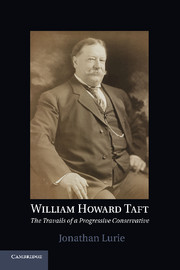Book contents
4 - The Unwilling Heir, 1904–1908
Published online by Cambridge University Press: 05 December 2011
Summary
Will as Secretary of War
By early February 1904, Taft had returned to Washington and settled in as TR’s secretary of war. He understood from conversations with both the president and Elihu Root that he would not have to worry much about administering the war department. Rather he was to function as a troubleshooter for the administration, keep his eyes on the Philippines, and most important, be available to aid TR in his campaign for reelection. Never before had a “succeeding” president (formerly vice president) been reelected on his own to a second full term. Roosevelt knew that history was against him. But he realized that with the death of Ohio Senator Mark Hanna, also in February, there was no Republican politician in a position to mount an effective campaign in opposition to his renomination.
Fresh from almost four years of hands-on administration with varied challenges and minimal interference from Washington, Taft chafed at the emphasis on politics that enveloped TR’s conduct of his office in 1904. He wrote to Nellie that his first cabinet meeting “was largely devoted to politics…. It seems to me … undignified for us to devote so much time to mere political discussion….” On the other hand, he succumbed readily to the famous Roosevelt charm. “He is a very sweet natured man and a very trusting man when he believes in one. I am growing to be very fond of him.”
- Type
- Chapter
- Information
- William Howard TaftThe Travails of a Progressive Conservative, pp. 64 - 88Publisher: Cambridge University PressPrint publication year: 2011



